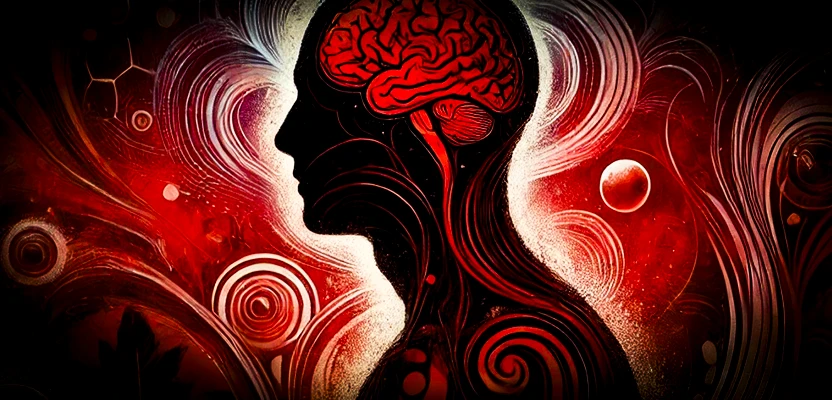
Mephedrone, often referred to as "Meow Meow" or "M-Cat," is a synthetic stimulant that has gained popularity due to its euphoric effects. Like other drugs in the amphetamine family, it impacts the brain and body in profound ways, but its effects are not without serious risks. In this article, we’ll explore how mephedrone influences the body step-by-step, what users typically feel, and the potential dangers associated with its use.
Origins and Rise to Popularity
In the early 2000s, mephedrone began to gain attention in Europe, especially in the UK, where it was sold online under names like "plant food" or "bath salts" to evade legal restrictions. It was marketed as a legal substitute for popular party drugs and was labeled "not for human consumption" to exploit legal loopholes. By 2009, it had become one of the most popular recreational drugs in the UK, particularly in the clubbing and festival scenes. It was often compared to MDMA, cocaine, and amphetamines because of its euphoric and stimulant effects.
However, the rapid rise in popularity came with growing concerns about its safety. Users reported a range of side effects, including increased heart rate, paranoia, anxiety, and even hallucinations. There were also several reports of deaths linked to mephedrone use, which intensified public and governmental scrutiny. By 2010, several European countries, including the UK, moved to ban the substance due to the mounting evidence of harm.
What is Mephedrone?
Mephedrone is a synthetic stimulant that acts as a psychoactive drug, producing effects similar to MDMA (ecstasy) and cocaine. It works by increasing the levels of neurotransmitters such as dopamine and serotonin in the brain, which contribute to feelings of euphoria, increased sociability, and heightened sensory perception. These effects typically last for 2 to 4 hours, depending on the method of administration.
The drug is usually found in the form of a white or yellowish powder, but it can also be pressed into pills or capsules. It is most commonly snorted or swallowed, though some users inject it, which increases the risks of overdose and infections.
Why Mephedrone is Addictive
One of the reasons mephedrone became so popular is its relatively short duration of effects, which often leads users to re-dose frequently. This pattern of use increases the risk of psychological dependence. Mephedrone’s ability to flood the brain with dopamine and serotonin results in a powerful reward response, making users want to repeat the experience, often leading to binge use.
According to studies, repeated use of mephedrone can lead to a depletion of serotonin and dopamine levels, resulting in severe comedowns characterized by depression, anxiety, and lethargy. Users also report a strong psychological craving for the drug, making it highly addictive for some.
Mephedrone, often referred to as "Meow Meow" or "M-Cat," is a synthetic stimulant that has gained popularity due to its euphoric effects. Like other drugs in the amphetamine family, it impacts the brain and body in profound ways, but its effects are not without serious risks. In this article, we’ll explore how mephedrone influences the body step-by-step, what users typically feel, and the potential dangers associated with its use.
1. Initial Impact: Rapid Onset of Euphoria
Once consumed—whether snorted, swallowed, or injected—mephedrone quickly enters the bloodstream and begins affecting the brain. The onset of effects can be as fast as 15 minutes when snorted, and around 30-45 minutes if taken orally. Users typically report feelings of euphoria, increased confidence, and heightened energy. This rush can make users feel more alert, sociable, and extremely affectionate towards others, often comparing the experience to a combination of MDMA and cocaine.
This initial "high" is largely due to the drug’s effect on neurotransmitters like serotonin and dopamine. Mephedrone acts as a non-selective monoamine transporter, which means it increases the levels of these chemicals in the brain. As a result, users feel a surge of happiness, closeness to others, and a desire to move or dance, making it particularly popular in club environments.
2. Sensory Overload and Physical Stimulation
As the effects intensify, users report heightened sensitivity to sensory stimuli. Touch, in particular, becomes more pleasurable, which is why mephedrone is often associated with increased sexual arousal. This stimulation is accompanied by physical symptoms such as teeth grinding (bruxism), excessive sweating, and a racing heart rate. Many users also experience a spike in body temperature, which, if uncontrolled, can lead to dangerous overheating—especially in environments where physical activity is high, such as at parties or clubs.
3. Short-Term Psychological Effects: Euphoria Mixed with Anxiety
While the immediate effects of mephedrone can feel enjoyable, they are often accompanied by negative side effects. As the drug stimulates the nervous system, some users begin to feel anxious, agitated, or paranoid. This is particularly common in higher doses or when the drug is mixed with other substances. Hallucinations, confusion, and panic attacks are also reported by some users, especially as the initial euphoric effects wear off.
Mephedrone’s short-lived high, which lasts about 2-3 hours when taken orally, often leads users to re-dose to maintain the feeling. This compulsive redosing increases the risk of harmful physical and psychological effects.
4. Physical Strain: Cardiovascular and Circulatory Stress
One of the major risks of mephedrone is the strain it places on the heart and circulatory system. Users often experience heart palpitations, elevated blood pressure, and a rapid heart rate. Prolonged use or excessive doses can lead to more severe cardiovascular issues, including heart attacks and strokes. Some users have also reported cold or blue-tinged extremities due to the drug’s impact on blood circulation.
5. After the High: The Crash and Potential for Addiction
As the effects of mephedrone wear off, users often experience a significant "crash." This comedown is characterized by extreme fatigue, mood swings, irritability, and feelings of depression. The crash can last for several days, with some users reporting difficulty sleeping (insomnia) and lingering anxiety. This drop in mood and energy is due to the depletion of serotonin and dopamine levels in the brain, which can take time to replenish.
Repeated use of mephedrone increases the risk of developing a psychological dependence. Users often feel compelled to take more of the drug to avoid the negative effects of the comedown, which can lead to a cycle of binge use. Some studies suggest that mephedrone is highly addictive, with users experiencing cravings and difficulty controlling their consumption.
6. Long-Term Effects: Damage to Mental and Physical Health
Long-term use of mephedrone can have serious consequences for both mental and physical health. Chronic users often report memory problems, anxiety disorders, and depression. The drug’s neurotoxic effects can lead to lasting changes in brain chemistry, making it harder for users to experience pleasure from normal activities. Physical health is also at risk, particularly the cardiovascular system. Repeated exposure to mephedrone can increase the likelihood of heart-related issues and potentially lead to permanent damage.
Additionally, those who inject the drug face the added risk of infections, abscesses, and other complications related to intravenous drug use. Sharing needles can also lead to the transmission of diseases like HIV and hepatitis.
7. Statistics and Usage Trends
Mephedrone gained widespread attention in the late 2000s, particularly in the UK, where it was marketed as a legal alternative to ecstasy. However, the drug was quickly banned due to the mounting evidence of its harmful effects. Despite this, mephedrone remains popular in certain circles, particularly in party and rave settings. According to a report from the UK, several deaths each year are linked to mephedrone use, and its presence in toxicology reports continues to rise globally, despite efforts to regulate it.
In 2024, mephedrone remains a significant concern for public health officials, particularly due to its accessibility on the darknet. Users are often unaware of the exact contents of the drugs they purchase online, further increasing the risks associated with its use.





Comments 0